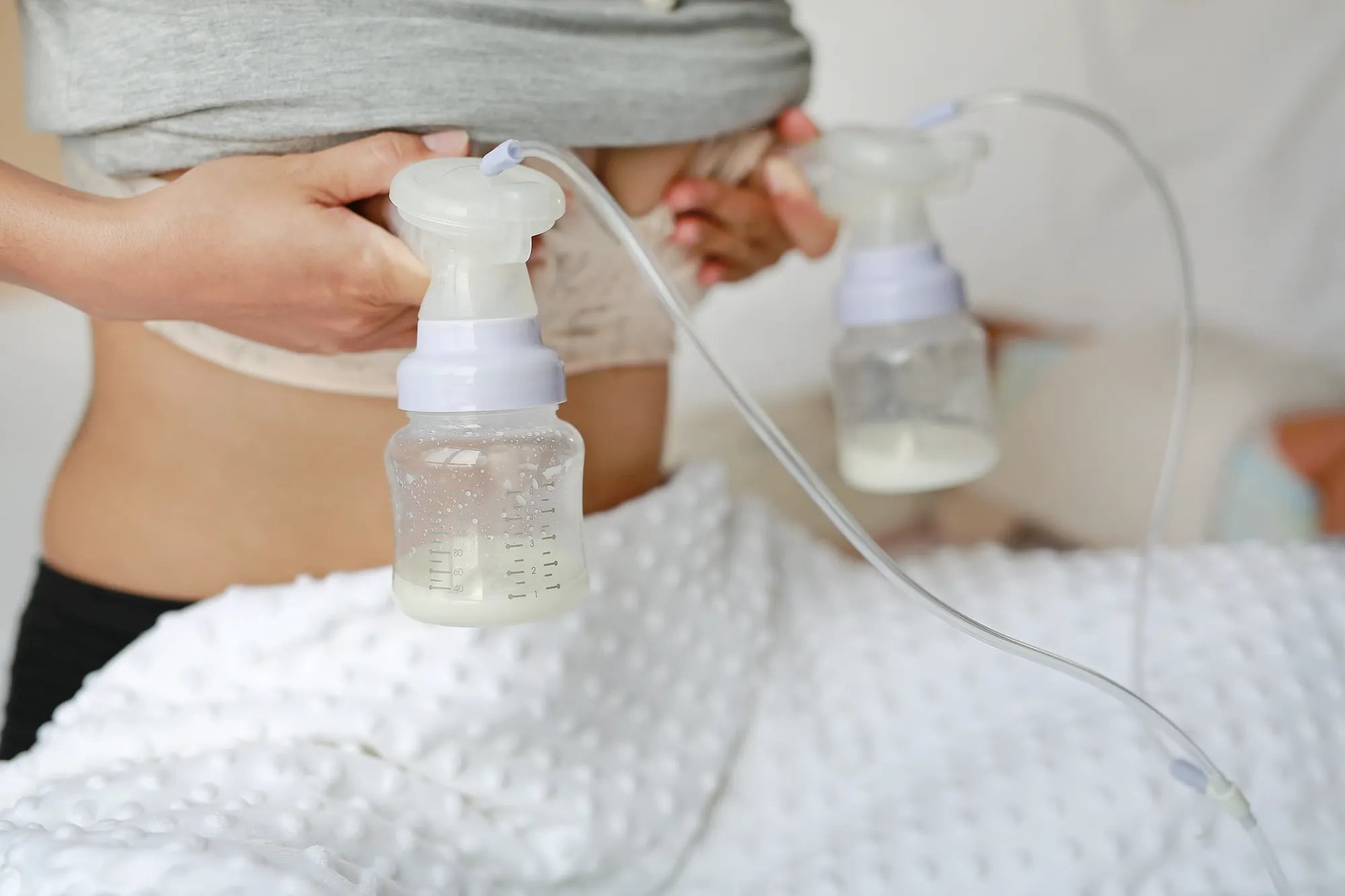Home
Pregnancy, Breastfeeding, and Pumping: The Ultimate Guide for Moms
How Long Is Too Long to Pump Breast Milk: A Comprehensive Guide

How Long Is Too Long to Pump Breast Milk: A Comprehensive Guide
For breastfeeding mothers, pumping breast milk is an essential part of ensuring their baby gets the nourishment they need. However, one common question that arises is: how long is too long to pump breast milk? This article delves into the factors that influence pumping duration, the potential risks of over-pumping, and practical tips to maintain a healthy milk supply while safeguarding maternal well-being.
Understanding the Basics of Pumping Breast Milk
Pumping breast milk is a skill that requires practice and patience. The duration of each pumping session can vary depending on several factors, including the mother's milk supply, the baby's feeding schedule, and the type of breast pump used. Generally, a pumping session lasts between 15 to 30 minutes. However, this can differ based on individual needs and circumstances.
Factors Influencing Pumping Duration
Several factors can influence how long a mother should pump breast milk:
- Milk Supply: Mothers with a robust milk supply may find that they can express milk more quickly, while those with a lower supply may need to pump for a longer duration.
- Baby's Feeding Schedule: If the baby is feeding frequently, the mother may need to pump more often but for shorter durations. Conversely, if the baby is feeding less frequently, longer pumping sessions may be necessary.
- Type of Breast Pump: Different breast pumps have varying levels of efficiency. Some pumps may extract milk more quickly, reducing the need for extended pumping sessions.
- Comfort and Efficiency: A mother's comfort level with the pump and her ability to relax during the session can also impact the duration. Stress or discomfort can prolong the pumping process.
Risks of Over-Pumping
While pumping breast milk is beneficial, over-pumping can lead to several issues:
- Nipple Soreness and Damage: Prolonged pumping can cause nipple soreness, cracking, or even damage. It's essential to ensure that the breast pump is used correctly and that the suction level is appropriate.
- Engorgement and Mastitis: Over-pumping can lead to engorgement, a condition where the breasts become overly full and painful. In severe cases, this can result in mastitis, an infection of the breast tissue.
- Hormonal Imbalance: Excessive pumping can disrupt the natural balance of hormones responsible for milk production, potentially leading to a decrease in milk supply over time.
- Fatigue and Stress: Spending too much time pumping can lead to physical and emotional fatigue, affecting the mother's overall well-being.
Optimal Pumping Duration
Determining the optimal duration for pumping breast milk involves balancing the need to express enough milk with the risks of over-pumping. Here are some guidelines:
- Frequency Over Duration: It's generally more effective to pump more frequently for shorter durations rather than pumping for extended periods less often. For example, pumping for 15 minutes every 2-3 hours is often more beneficial than pumping for 30 minutes every 4-5 hours.
- Listen to Your Body: Pay attention to how your body responds to pumping. If you experience discomfort or pain, it may be a sign that you're pumping for too long or using the pump incorrectly.
- Consult a Lactation Expert: If you're unsure about the appropriate duration for pumping, consider consulting a lactation consultant. They can provide personalized advice based on your specific needs and circumstances.
Tips for Maintaining Milk Supply and Maternal Health
To ensure a healthy milk supply and maintain maternal well-being, consider the following tips:
- Stay Hydrated: Drinking plenty of water is essential for milk production. Aim to consume at least 8-10 glasses of water daily.
- Eat a Balanced Diet: A nutritious diet rich in fruits, vegetables, whole grains, and lean proteins can support milk production and overall health.
- Rest and Relax: Adequate rest is crucial for milk production and maternal well-being. Try to get as much sleep as possible and take breaks when needed.
- Use Proper Pumping Techniques: Ensure that you're using the breast pump correctly. Follow the manufacturer's instructions and adjust the suction level to a comfortable setting.
- Monitor Milk Output: Keep track of how much milk you're expressing during each session. If you notice a significant decrease in output, it may be a sign that you need to adjust your pumping routine.
When to Seek Professional Help
If you're experiencing persistent issues with pumping, such as pain, low milk supply, or difficulty maintaining a pumping schedule, it's important to seek professional help. A lactation consultant or healthcare provider can offer guidance and support to address these challenges.
Pumping breast milk is a valuable tool for breastfeeding mothers, but it's essential to find the right balance. By understanding the factors that influence pumping duration, recognizing the risks of over-pumping, and following practical tips, mothers can ensure a healthy milk supply while prioritizing their own well-being. Remember, every mother's journey is unique, and it's okay to seek help when needed.
Share


